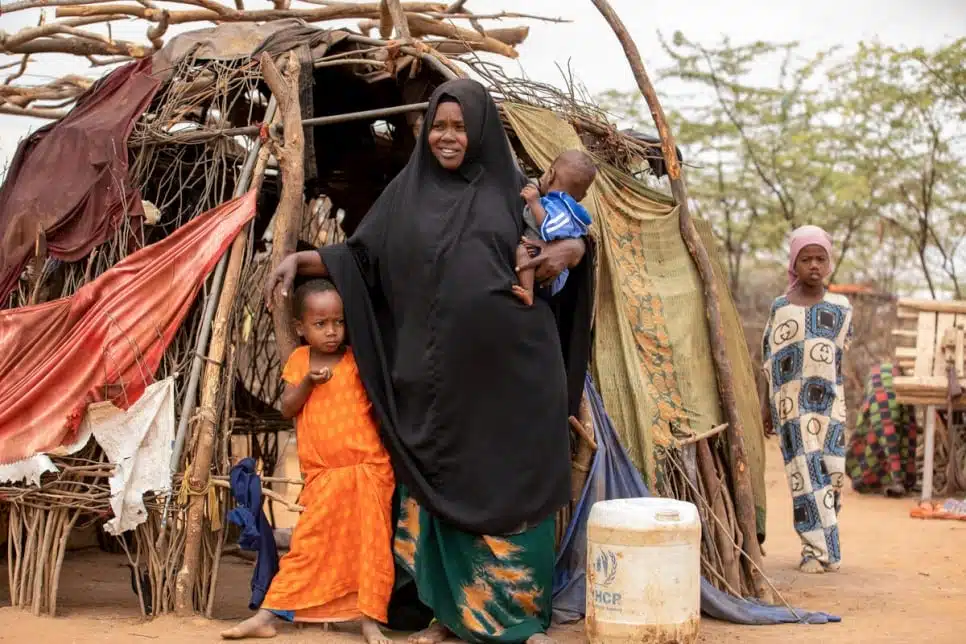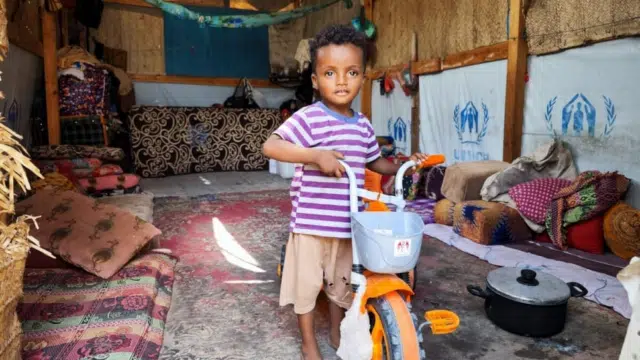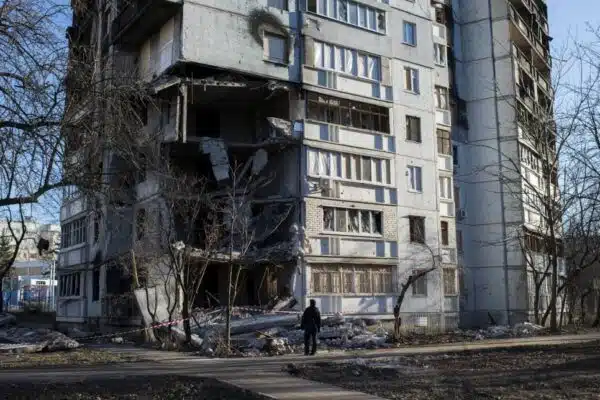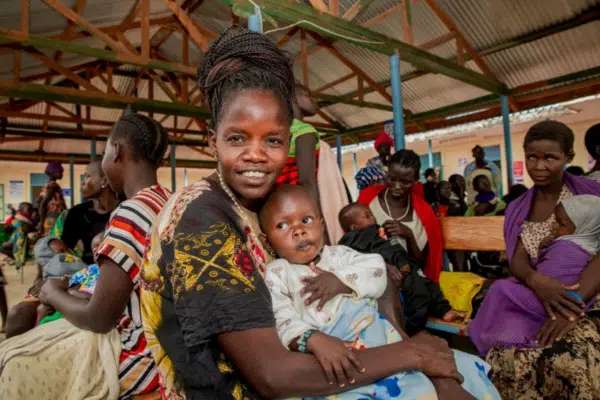
Shamsa Amin, 38, arrived in Kenya’s Dadaab with her mother and 10 children in March 2022 after the drought ravaged her crops and livestock back in Somalia. © UNHCR/Charity Nzomo
This is a summary of what was said by UNHCR spokesperson Olga Sarrado Mur – to whom quoted text may be attributed – at today’s press briefing at the Palais des Nations in Geneva.
As the Horn of Africa enters its sixth consecutive rainy season with no rain, displacement continues to climb as millions from Somalia, Ethiopia and Kenya struggle to survive amid scarce water sources, hunger, insecurity and conflict.
With no immediate end in sight to one of the longest and most severe droughts on record, UNHCR, the UN Refugee Agency, is appealing for US$ 137 million to provide life-saving aid to 3.3 million refugees and internally displaced people who have been forced to flee their homes in search of safety and assistance, as well as affected local host communities.
While famine has so far been averted in Somalia, mostly due to a stepped-up humanitarian response, people continue to battle life-threatening food and water shortages resulting from massive losses of harvests, livestock, and income. Local commodity prices also remain at an all-time high, out of reach for many. The dangerous confluence of climate and conflict in the region is worsening an already dire humanitarian situation.
As a result, hundreds of thousands of people have been uprooted from their homes in search of safety and assistance. According to UNHCR data, over 1.7 million people have been internally displaced in Ethiopia and Somalia due to the drought, most of them last year. More than 180,000 refugees from Somalia and South Sudan also crossed into drought-affected areas of Kenya and Ethiopia.
In recent weeks, nearly 100,000 people have arrived in Doolo, a remote area in Ethiopia’s Somali region itself hard hit by the drought, fleeing conflict in the Laascaanood area within Somalia. In Somalia alone, since the start of the year, over 287,000 people have been internally displaced due to conflict and drought.
Due to space constraints in Kenya’s Dadaab camps, arriving refugees seeking relief from this climate catastrophe have been forced to reside along the outskirts of the camps where assistance is limited, while efforts are underway to establish a new settlement at the site of a previously closed camp. One refugee woman in her late sixties who recently arrived in Dadaab told our staff that despite enduring three decades of conflict in southern Somalia, extreme hunger forced her to flee for her life.
As drought and insecurity persist in 2023, humanitarian needs are also expected to rise.
UNHCR plans to provide more basic relief items including emergency shelter and household items for new refugee arrivals and displaced people in the three countries. Water supply will be increased through water trucking, drilling additional boreholes as well as refurbishing existing water and sanitation systems.
Cash assistance will be prioritized for the most vulnerable so they can supplement their food needs and encourage traders to make food and other necessities available.
Health facilities will also be supported to step up nutritional assistance for women and children through high-nutrient feeding and medical treatment for related diseases.
UNHCR will work with local authorities to strengthen border monitoring and facilitate refugee registration and documentation so that new arrivals, including those with special needs, can access appropriate assistance. Child protection as well as interventions to mitigate gender-based violence will also be intensified.
This additional assistance and protection is required urgently.
In 2022, UNHCR received less than half of the required financial resources to respond to the drought. We continue to call for more global solidarity and support to protect, assist and empower drought-affected communities and save millions of lives.
Note for editors :
You can download the UNHCR 2023 Horn of Africa Drought Appeal here.
For broadcasters, news organizations and other media professionals, b-roll is available here.
Link to the multimedia package: https://media.unhcr.org/Package/2CZ9LOB20B3P
For more information on this topic, please contact:
- In Nairobi (regional), Faith Kasina, kasina@unhcr.org, +254 113 427 094
- In Addis Ababa, Neven Crvenkovic, crvenkov@unhcr.org, +251 948 053 450
- In Nairobi, (Kenya), Firas Al Khateeb, khateeb@unhcr.org +254 757 983 444
- For Somalia, Marco Lembo, lembo@unhcr.org +254 714 524 339
- In Geneva, Olga Sarrado, sarrado@unhcr.org, +41797402307
- In Ottawa, Levon Sevunts, sevunts@unhcr.org, +1 613-286-6975





